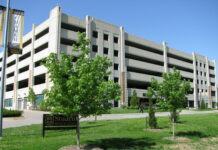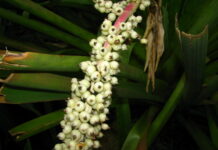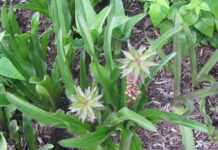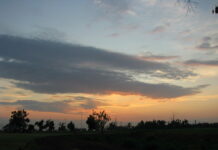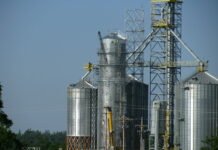Photo credit: DiasporaEngager (www.DiasporaEngager.com).
On September 12, 2001, Dr. Marc Wilkenfeld, a specialist in occupational medicine, was treating victims of terror at a site that would later become known as Ground Zero. More than 22 years later, Wilkenfeld found himself 6,000 miles away from Ground Zero treating terror victims in Israel.
Wilkenfeld took leave of his job for two weeks to volunteer with IL-USDocAID, an initiative that was established in the immediate aftermath of the Hamas attacks on October 7, in which more than 1200 people were murdered and 253 were abducted to Gaza.
The project, a joint partnership between Israel’s Health Ministry and the Israel Economic Mission to the US, came in response to the sudden duress suffered by Israel’s health system from soaring casualties and the deployment of thousands of medical staff members, who serve in the IDF as reserve soldiers, to the frontlines.
Wilkenfeld said he was driven to come to Israel after seeing reports of mobilization efforts by Israeli civilians, some as early as October 7 itself. The idea of Israelis who were told to stay in their safe rooms rushing to help first responders wherever they could compelled him to action.
“In America, you feel helpless. What are you going to do? The ability to go here and even play a small role, just to give some advice medically – it’s a beautiful thing,” he told The Algemeiner.
Wilkenfeld took his family with him, who volunteered by cooking for soldiers while he was treating people.
In Israel, Wilkenfeld experienced many firsts. Despite 30 years of being active in the medical profession, including at the scenes of terror attacks, it was the first time he had ever encountered an ambulance station pockmarked by shrapnel and ambulances riddled with bullet holes.
Visiting physicians are given a choice to volunteer with paramedics in ambulances or work directly inside hospitals.
“When you have a doctor in the ambulance there’s more you can do as a paramedic,” Wilkenfeld said. “It also gives real strength for the paramedics to know that people want to come and give help.”
Wilkenfeld said the visit taught him not to pay too much attention to misinformation about Israel.
“I didn’t learn too much about medicine, but I learned a lot about Israel,” he said. “You read in the press that Israel is an apartheid state. But from a medical perspective it’s precisely the opposite.”
During his time in the country, Wilkenfeld said that all the patients he treated received the same medical care, from the “arab in east Jerusalem” to the “major rabbi from Har Nof,” an ultra-Orthodox suburb.
He noted, however, that working in Jerusalem was vastly different from the south, which suffered the brunt of the onslaught, where people are still in an acute state of shock.
“I’ve seen almost a thousand 9/11 responders, the responders in Sderot have the same look in their eyes,” he said of the southern Israeli city in which at least 50 civilians and 20 police officers were murdered. “They talk about the bodies in the ambulance station, about how to prioritize patients, that they haven’t slept in weeks.”
He also said that meeting with the families of hostages left him with a “terrible sadness,” rendering him speechless. Leaning on his medical expertise, however, eventually allowed Wilkenfeld to find his own voice to console them.
“It’s not possible to live in southern Israel and not have PTSD,” he said.
Wilkenfeld returned to his job in New York, where he serves as chief of occupational medicine and clinical assistant professor at NYU-Langone in Long Island, with a somber sense of the realities facing Israel.
He is already working to recruit more volunteers for the project if war should come to Israel again.
“If there is a next time, God forbid, now we can mobilize,” he said. “Now we know who to talk to, where things are.”
Parting ways with the Israeli medical personnel he worked alongside, Wilkenfeld was struck by their sacrifice amidst incomprehensible conditions.
“I leave and they have to live with this.” At the end of the day, he said, “they did much more for me than I did for them.”
To find out more about volunteering as a medic in Israel, click on the following link: IL-USDocAID: https://www.ilusdocaid.org/
Source of original article: Israel – Algemeiner.com (www.algemeiner.com).
The content of this article does not necessarily reflect the views or opinion of Global Diaspora News (www.GlobalDiasporaNews.com).
To submit your press release: (https://www.GlobalDiasporaNews.com/pr).
To advertise on Global Diaspora News: (www.GlobalDiasporaNews.com/ads).
Sign up to Global Diaspora News newsletter (https://www.GlobalDiasporaNews.com/newsletter/) to start receiving updates and opportunities directly in your email inbox for free.



